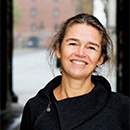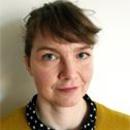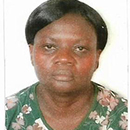Video recordings from these sessions are now available on this page: https://www.repro.cam.ac.uk/mmia-2020/recordings-and-resources
Session 1: How did the Danish birth care system manage to keep the late-nineteenth century level of MMR below the level of MMR in sub-Saharan Africa of today?
Speakers: Professor Anne Løkke and Ms Anna Kristiane Mortensen (University of Copenhagen, Denmark)
Chair: Dr Alice Reid (Department of Geography)
Anne Løkke is Professor of Danish History focused on Social, Cultural and Health History 1750-1950. She has published within a range of health and health policy related fields. Most prominently, however, in the field of reproductive health including the history of the Danish birth care policy, midwifery, obstetrics, perinatal mortality, infant mortality and maternal mortality.
Anna Kristiane Mortensen is Research Assistant at the research project Link-Lives (Link-Lives.dk). Her master thesis (2019) has thoroughly reviewed the quality of the Danish reporting of maternal deaths 1850-1957. One of her conclusions is that even if the published official statistics for the years 1890 to 1930 was underestimating the MMR according to the used definition in these years, a more inclusive definition still returns a level below 400 per 100,000 births.
Session 2: Interdisciplinary perspectives on maternal mortality in Kenya
Speaker: Professor Shane Doyle (University of Leeds, UK)
Chair: Professor Simon Szreter (Faculty of History)
Shane Doyle is Professor of African History at the University of Leeds and an editor of The Journal of African History. He has previously worked at the Cambridge Group for the History of Population and Social Structure and the British Institute in Eastern Africa. His most recent book Before HIV (OUP 2013) won the African Studies Association's Ogot prize. He is currently PI of an interdisciplinary project 'Maternal mortality in East Africa'.
Session 3: Maternal mortality in Sub-Saharan Africa: the Ugandan situation
Speaker: Ms Oliver Norah Nabacwa (Mulago Hospital, Uganda)
Chair: Professor Ashley Moffett (Department of Pathology)
Session 4: Regional progress and policy response to reduce maternal mortality in sub-Saharan Africa
Speaker: Dr Estelle Sidze (African Population & Health Research Center, Kenya)
Chair: Dr Yuliya Hilevych (Faculty of History)






